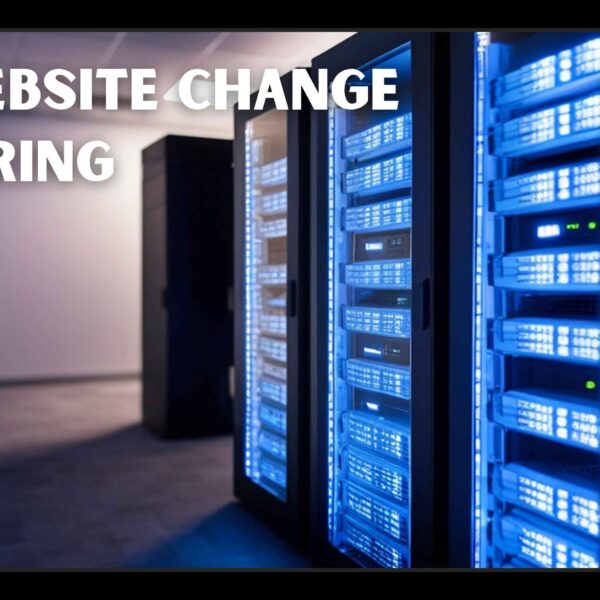It’s like trying to build a house without the right tools. You can try it, but you won’t get very far –– the walls won’t be straight, the roof will cave in, and your efforts will be wasted. The same is true for companies that don’t use business intelligence and big data: they may think they’re doing okay, but their lack of insight into what’s happening leads to problems down the line.
You might think that business intelligence and big data are just buzzwords. However, the truth is that they’re powerful tools that help companies make better-informed decisions. Let’s look in-depth at business intelligence, big data, and why it matters for your company’s success.
Decoding the Jargon
Let’s first understand what both these concepts mean.
Business intelligence (BI) is like a sophisticated GPS for navigating the complex world of data. It empowers organizations to collect, analyze, and transform raw data into meaningful insights, enabling them to:
- Make smarter decisions
- Optimize processes
- Achieve their goals more efficiently
Just as you rely on your GPS to avoid traffic jams and find the quickest route to your destination, BI helps businesses steer clear of potential pitfalls and chart the most effective course toward success.
On the other hand, big data is the ocean of information that BI uses to create its “maps.” It gathers large amounts of data from multiple sources, such as:
- Websites
- Online purchase records
- Customer feedback surveys
This data can then be used to make predictions about future patterns and trends in a company’s performance. By leveraging the power of big data, companies can anticipate the needs of their customers and make informed decisions that drive growth.
Size Matters
Every decision we make relies on a significant amount of information. Companies need abundant data points to make informed decisions, from the number of new products to launch to the most effective marketing strategies.
That’s why big data is so important: it helps businesses gain unprecedented access to insights that can be used to make decisions that impact the bottom line.
If you only have access to a limited pool of data, making accurate predictions is impossible. Similarly, your business intelligence could be significantly hampered if the data it’s relying on is incomplete or outdated.
The Dynamic Duo: How BI and Big Data Complement Each Other
So, how do they work in tandem?
Data in itself doesn’t bring value to your business. You must have systems in place to extract meaning from the data and turn it into actionable insights. That’s where BI comes in. It takes the raw big data and turns it into useful information that you can use to drive better decisions.
These BI processes may come in the form of dashboards, charts, or reports, all of which you can use to make sense of the data. Once the data has been transformed into insights, businesses can confidently take steps that drive their performance forward.
Top 4 Benefits of Data-driven Decision-making
At this point, the benefits of BI and big data are becoming clearer. However, we understand if you still have questions about their viability for your business. Here are four reasons why using data-oriented strategies is better for your business.
1. Streamlined Processes and Resource-saving
One of the essential benefits of integrating business intelligence and big data into your business is the ability to streamline processes. When you analyze your data and use it to identify inefficiencies, redundancies, and areas for improvement, you can identify ways to optimize your operations.
Doing so saves valuable time and resources that can be better allocated toward growth and development in other areas. Additionally, it helps you identify maintenance needs before they become larger-scale issues, ultimately reducing downtime and associated costs.
2. Enhanced Opportunity-spotting and Profit Maximization
Through the use of machine learning algorithms and predictive analytics, you can:
- Collect insights on trends
- Predict customer behavior
- Identify changing market dynamics
- Gain a significant advantage over your competitors
These insights translate into improved financial performance, as you’ll be able to act quickly and capitalize on market opportunities in real time. Working with a data management consultant can also help you develop data strategies that maximize profits.
3. Inherent Competitive Advantage
Incorporating BI and big data gives you a leg up over your competition that does not leverage these resources. This advantage is more pronounced in data-rich industries, such as:
- Finance
- Healthcare
- Retail
- E-commerce
However, this advantage is always true for any company and industry today.
With the numerous tools and technologies available for data analysis, integrating these resources is a relatively low barrier to entry. Those who choose to ignore these trends risk falling behind, while those who embrace them gain a competitive edge.
4. Improved Customer Experience
Big data and BI are invaluable in customer service and care. You can use data to identify customer needs, tailor your marketing efforts, optimize your user experience, and ultimately provide more personalized, customer-centric interactions.
By offering a seamless, intuitive customer journey, you’re likely to increase brand loyalty, drive customer retention, and generate positive word-of-mouth.
Ultimately, this translates into a better return on investment for your business.
BI and Big Data in Action
Data-driven solutions are applied anywhere today. From financial institutions to healthcare providers and e-commerce companies, BI and big data use is becoming more prevalent.
Let’s look at the data’s use cases in these three industries in more detail below.
1. Personalization and Prediction in Retail
Retailers have long relied on customer data to help them understand who their customers are and what they want. However, with the proliferation of data sources and customer touchpoints, companies need more sophisticated tools to sift through and analyze data in real time.
Big data analytics help retailers analyze the vast amount of data they collect on customer transactions and behaviors, creating actionable insights that improve the overall customer experience. BI tools help retailers predict trends, personalize offers, and optimize pricing.
If you run an e-commerce business, you can use web analytics to track customer data points such as page visits, click-through rates, and purchase history. With this information in hand, you can personalize product recommendations and discounts for a more tailored shopping experience.
Working with a big data consulting firm can help you simplify collecting, analyzing, and interpreting this customer data.
2. Saving Lives With Data in the Healthcare Sector
The healthcare sector is another industry ripe for BI and big data transformation. Health and life sciences organizations generate vast amounts of data, from electronic medical records to genomic data and clinical research.
With big data analytics, healthcare organizations can analyze data from multiple sources to identify patterns that can improve patient outcomes and drive greater operational efficiency.
Electronic medical records, lab results, and medical imaging data can be analyzed to improve patient diagnosis, treatment, and outcomes. AI algorithms and predictive analytics also enable healthcare providers to anticipate and prevent adverse medical events. Pinpointing these trends isn’t always easy, though. Business intelligence consulting firms can help your healthcare organization leverage its data to gain better insights.
3. Risk Assessment and Fraud Detection in Finance
The finance industry also uses BI and big data to identify risks and detect fraud. Financial institutions use predictive analytics to detect anomalous behavior and identify fraudulent activities before they occur.
This level of protection is essential, considering the large amounts of money transacted in this sector daily. BI and big data also help financial institutions make informed investment and lending decisions, mitigating risks and maximizing returns.
The Dark Side of BI and Big Data
Unfortunately, BI and big data also come with certain challenges. Here are three challenges businesses face when dealing with and processing large amounts of data today.
1. Privacy
Data collection is the foundation of both BI and big data. Companies like Facebook and Google can collect vast amounts of data that give insights into user behaviors, preferences, and interests. However, these data collection techniques can potentially violate user privacy.
For example, Facebook’s Cambridge Analytica scandal revealed how user data was harvested without consent, impacting how people viewed the company and how it handled user data.
To mitigate such risks, companies must have a comprehensive data privacy policy and adhere to the necessary regulations when collecting, processing, and storing data.
2. Security
With so much data stored, there’s always the risk of a cyberattack. Cybercriminals can quickly obtain sensitive information such as credit card data, passwords, and other personally identifiable information.
To keep data safe from unauthorized access, businesses must take steps to improve security systems. Investing in firewalls, encrypting data, and creating staff awareness programs to educate employees on cybersecurity best practices are all crucial.
3. Ethics
The use of BI and big data raises ethical concerns regarding collecting and using personal data. Some companies have been accused of using BI and big data to exploit customers by targeting them with manipulative marketing, while others have been caught using facial recognition software without consent.
There is also a growing concern over the biases that may come with the algorithms used in these tools. However, investing in business intelligence consulting can help businesses ensure they are using the right tools in the right way while adhering to ethical standards.
Embrace the Power of Information
From healthcare to finance and beyond, it’s clear that BI and big data are powerful business tools. As the famous saying goes: “Knowledge is power,” –– but only if you know how to use it.
Unlock your business’ potential by leveraging the latest in business intelligence and big data technology.




